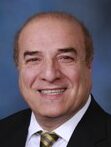
More Ear, Nose & Throat Articles
What Is an Ear, Nose and Throat (ENT) Doctor?
Otolaryngologists, commonly referred to as ENT physicians, are trained in the medical and surgical management and treatment of patients with diseases and disorders of the ear, nose, throat (ENT), and related structures of the head and neck.
ENTs diagnose and manage diseases of the ears, nose, sinuses, larynx (voice box), mouth, and throat, as well as structures of the neck and face.
The ears. Hearing loss affects one in 10 North Americans. ENTs are trained in both the medical and surgical treatment of hearing loss, ear infections, balance disorders, ringing in the ears (tinnitus), and some cranial nerve disorders.
The nose. Chronic sinusitis is one of the most common health complaints in the United States. Care of the nasal cavity and sinuses is one of the primary skills of ENTs. Problems in the nasal area include allergies, smell disorders, polyps, and nasal obstruction due to a deviated septum.
The throat. ENTs manage diseases of the throat, voice box, and the esophagus, including voice and swallowing disorders.
The head and neck. This area of the body includes the important functions of sight, smell, hearing, and the appearance of the face. In the head and neck area, ENTs are trained to treat infections, benign (non-cancerous) and malignant (cancerous) tumors, facial trauma, and deformities of the face. They perform both cosmetic plastic and reconstructive surgery.
Subspecialty areas of ENT are allergy, facial plastic and reconstructive surgery, head and neck, laryngology (throat), otology/neurotology (ears, balance, and tinnitus), pediatric otolaryngology (children), rhinology (nose), and sleep disorders.
Allergy treatment by medication, immunotherapy (allergy shots) and/or avoidance of pollen, dust, mold, food, and other sensitivities that affect the ear, nose, and throat. Treating hay fever, seasonal and perennial rhinitis, chronic sinusitis, laryngitis, sore throat, otitis media, dizziness
Laryngology disorders of the throat, including voice and swallowing problems. Treating sore throat, hoarseness, swallowing disorder, gastroesophageal reflux disease (GERD), infections and tumors.
Rhinology disorders of the nose and sinuses. Treating sinus disorder, nose bleed, stuffy nose, loss of smell, polyps, tumors.
Why Should You See an ENT?
These specialists differ from many physicians in that they are trained in both medicine and surgery. ENTs do not need to refer patients to other physicians when ear, nose, throat, or head/neck surgery is needed and, therefore, can offer the most appropriate care for each individual patient. ENTs are the most appropriate physicians to treat disorders of the ears, nose, throat, and related structures of the head and neck.
Information Provided by the American Academy of Otolaryngology

















